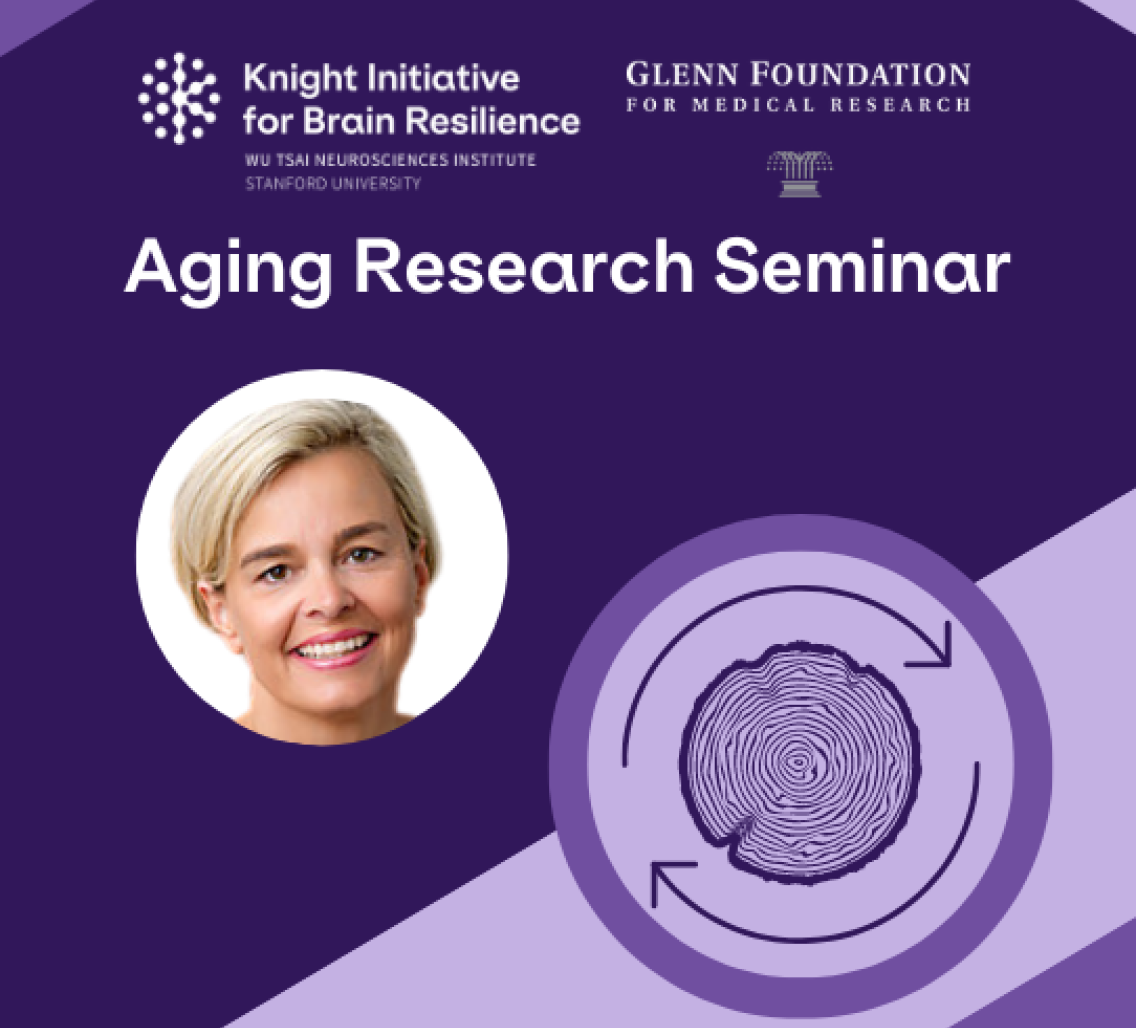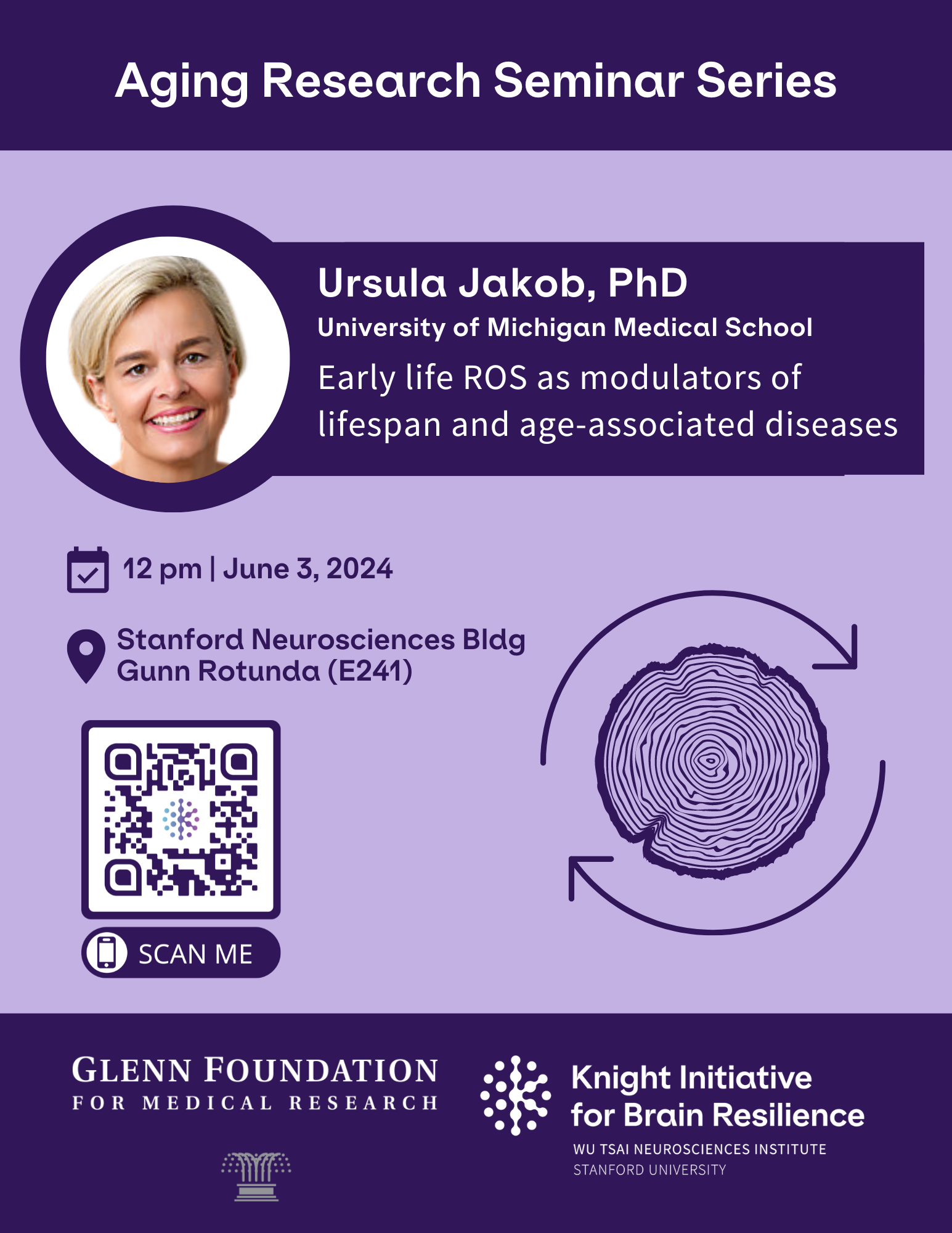Event Details:

Join us for the inaugural ‘Knight/Glenn Aging & Resilience Seminar Series’ featuring Dr. Ursula Jakob, from the University of Michigan Medical School. Dr. Jakob will discuss "Early life ROS as modulators of lifespan and age-associated diseases”, hosted by Knight Initiative Awardee, Dr. Judith Frydman.
This collaborative seminar, a joint effort of the Knight Initiative for Brain Resilience and the Paul F. Glenn Center for Biology of Aging Research, marks the beginning of our 2024-2025 Seminar Series, comprising four engaging events.
To support our researchers' participation in this open science ‘lab-meeting style’ exchange of ideas, these seminars are not streamed/recorded and are only open to members of the Stanford community.
Ursula Jakob, The University of Michigan Medical School
Early life ROS as modulators of lifespan and age-associated diseases
Why do we age and why do some of us stay healthy longer than others? Many years of aging research have shown us that human lifespan is determined by a combination of our genetic make-up, the environment we live in and some, yet to be identified and seemingly stochastic events. Thanks to the development of shorter-lived aging model organisms, much has been learnt about the processes which contribute to our inevitable demise, and the tight connection between these processes and the development of age-associated diseases, including Alzheimer’s and Parkinson’s. New drugs and interventions are being found that extend lifespan in model organisms and can help delay the onset of these devastating neurodegenerative diseases. My lab recently discovered that events that happen naturally in early life can have profoundly beneficial effects on the lifespan of organisms and their ability to stay healthy. Studying the underlying mechanisms by which this ticking clock is set during early life and manifests itself during adulthood gives us hope we can identify novel effective interventions to enable people to live long and healthy lives.
